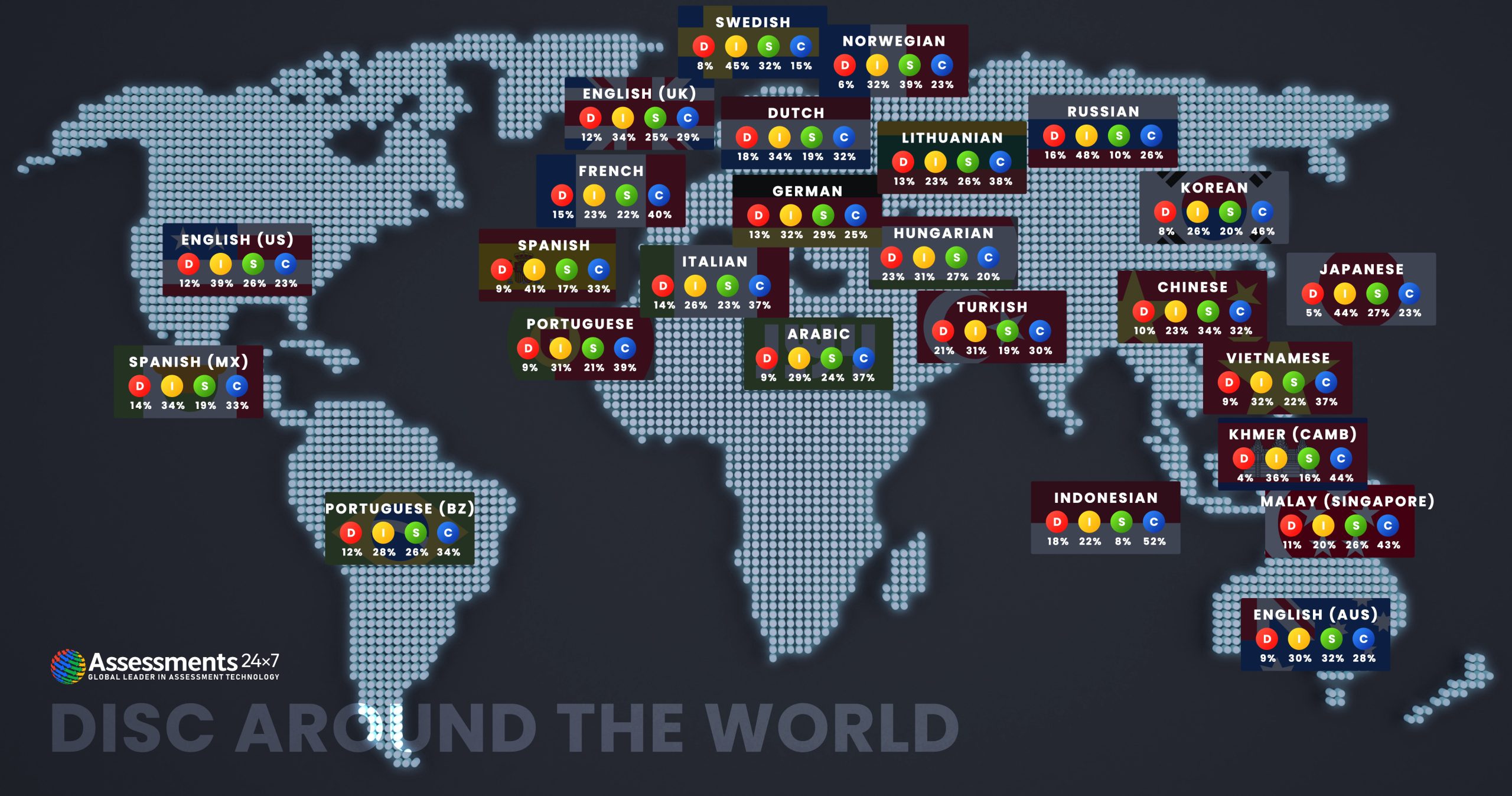Every year, millions of individuals worldwide complete a DISC Assessment, a popular tool for enhancing self-understanding and improving interpersonal relationships. The DISC model categorizes personality traits into Dominance, Influence, Steadiness, and Conscientiousness, helping individuals gain insights into their behaviours and personalities.
Recently, we collaborated with Assessments 24×7 to explore whether trends in DISC styles vary across different regions, akin to the cultural differences seen worldwide.
Cultural Norms and DISC Styles
It’s evident that cultural norms differ significantly across regions. For instance, the cultural practices of Koreans vary from those of Italians. Typically, these differences are viewed through the lenses of food, language, and societal behaviours. However, the DISC Self Assessment, available in 26 languages, allows for a unique exploration of these cultural norms through personality data.
Assessment data from each language was extracted to determine the percentage of each DISC style based on language and culture. This information was then compiled into the DISC Around the World Map, revealing some intriguing insights.

Key Insights from the DISC Around the World Map
Upon reviewing the data from the DISC Around the World Map, a few interesting patterns emerged:
- Under-representation of the D Personality Type: The Dominance (D) personality type appears to be under-represented in most cultures. This trait, characterised by assertiveness, control, and a drive for results, seems less prevalent globally.
- Prevalence of the C Personality Type: Most cultures identify more strongly with the Conscientiousness (C) personality type. This trait is marked by a preference for accuracy, stability, and a methodical approach to tasks.
Considerations and Context
It is important to note that this data was collected based on language preferences, not necessarily the geographical location of the respondents. Therefore, while the data provides valuable insights into cultural tendencies, it reflects the preferences of individuals who selected a particular language for the assessment, which might influence the results.
Conclusion
The DISC Assessment results highlight fascinating trends in personality styles across different cultures. The under-representation of the Dominance type and the prevalence of the Conscientiousness type across various cultures offer a unique perspective on global personality trends. By understanding these patterns, we can better appreciate the diversity of human behaviour and foster improved interpersonal relationships worldwide. The DISC model continues to be a valuable tool for self-discovery and enhancing our interactions in an increasingly interconnected world.






